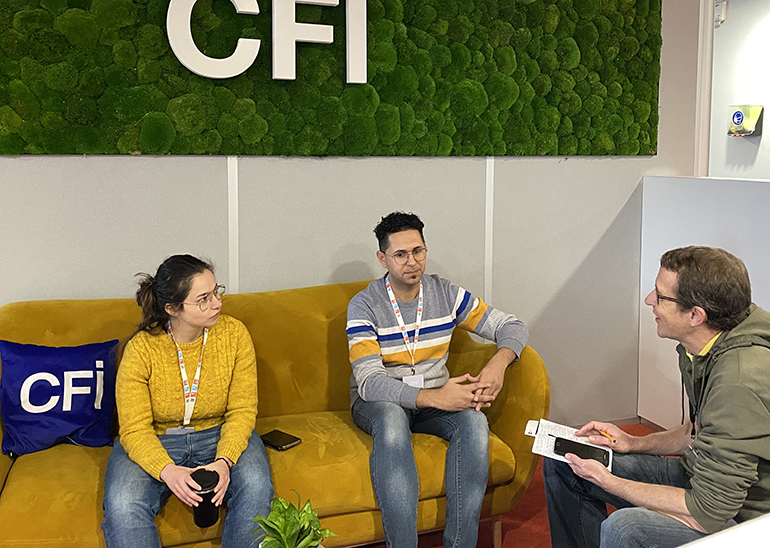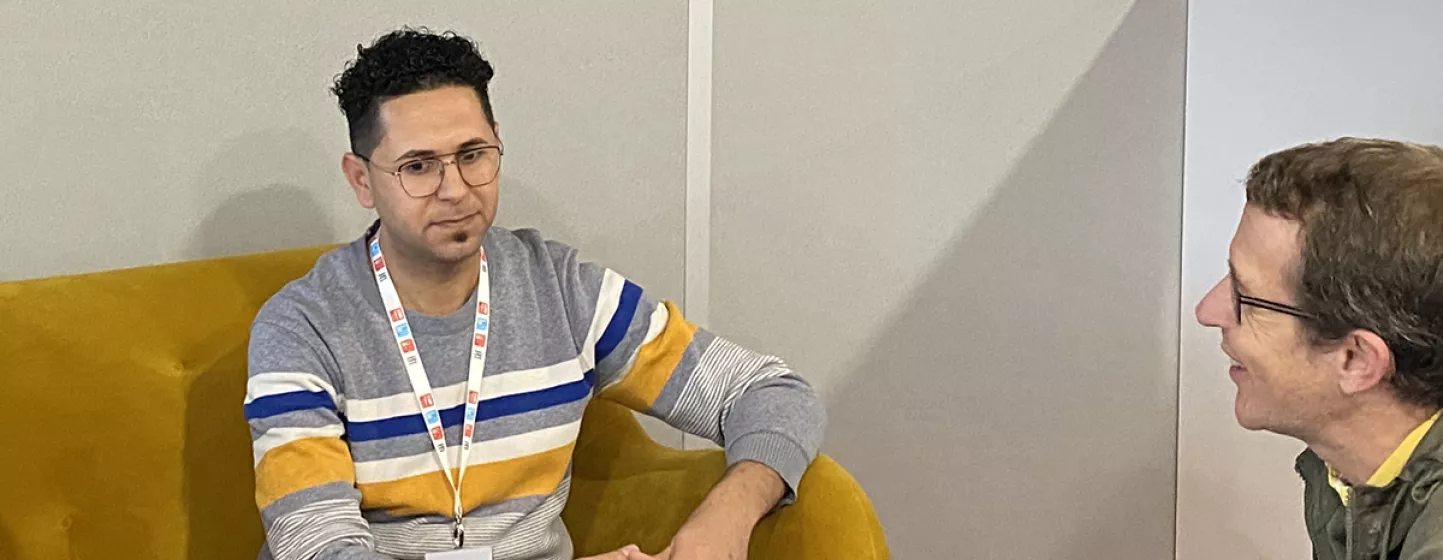Three questions for Haidar Baghdadi: "I picked up a lot of my good practices during the project"
He sits in the front row, wearing his statement glasses and watching attentively, almost studiously, but a wry smile is never far away. 30-year-old Haidar Baghdadi, a lecturer and video editor working at the Faculty of Media of the University of Baghdad, visited the France Médias Monde and CFI headquarters earlier this month. An interview with an expert in putting theoretical knowledge into practice.
Interview by Emmanuel de Solère Stintzy.
What would you say are the differences between journalism here in France and in Iraq? How does the media in your country handle security, gender and the environment, some of the key themes of the Innovative journalism in Iraq project?
In Iraq, journalists who report from the field don't know how to edit those reports. Here, journalists seem to be able to do three or four things at once! This versatility is very important, particularly in war zones, where journalists need to be able to handle various situations without causing more problems.
The Iraqi media provides very little coverage of topics related to security, gender and the environment, it tends to focus on politics instead. In Iraq, a religious country, it is difficult to talk about everything we want to and there are no effective laws to protect journalists, who could be killed for mentioning certain subjects. No-one takes the risk anymore, it's better to just not talk about those things.
As a lecturer at the Faculty of Media of the University of Baghdad, you are part of the editorial team for 75 online educational videos on TV reporting and the basics of journalism, which are currently being produced by the France Médias Monde (FMM) Academy in partnership with CFI. What has this experience taught you?
As faculty staff, we worked in a team with five other people to gather information and edit multimedia content. I picked up a lot of what I know now, both in terms of theoretical knowledge and technical good practices, during this project! I got better at finding illustrations and editing photos and videos. We were also taught how to teach our students. When we showed them our videos, they were very impressed by our work. Some of them told us: "Thanks to your videos, you've allowed us to recap four years of study in just two weeks!" Previously, the course was entirely theory-based, but now, thanks to the project and its training sessions, which included a practical component, our faculty is starting to incorporate more practical elements into our programmes. This is important, because putting knowledge into practice allows students to discover their strengths and weaknesses. One such practical element is that we use smartphones to teach our students how to produce videos. Seeing our students put their skills into practice gives us confidence that they have a solid grasp of the basics before they leave us for their next chapter.
What do you think is in store for the future of journalism in Iraq? And for your future in this profession?
I would love to see these journalism students heading out into the field to put these new journalism practices to use in our national media. As for me, I would like to continue lecturing at the Faculty of Media so I can continue sharing my knowledge. This role not only offers me job security but also enables me to build relationships and monitor my students' progress over time.

